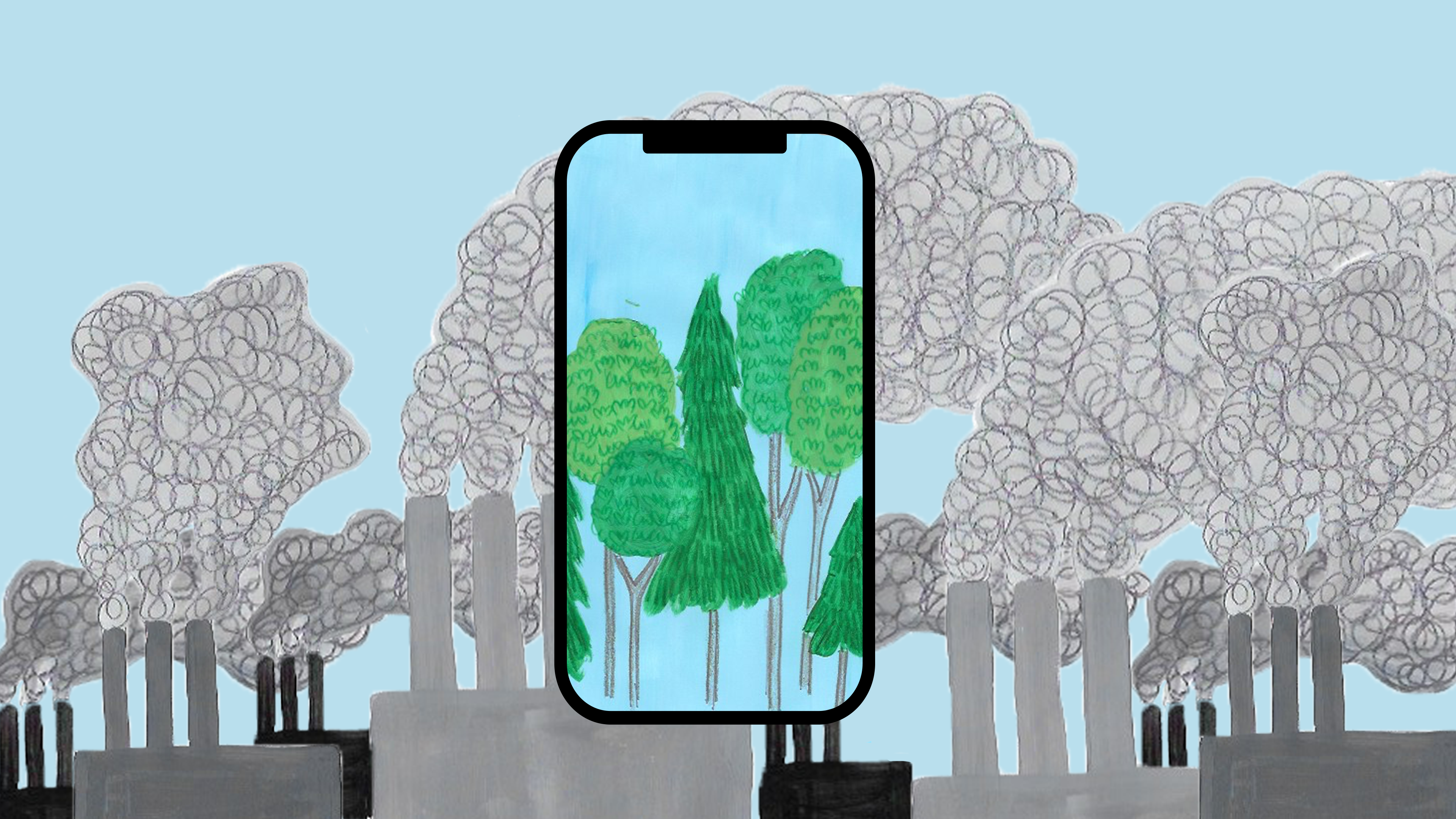
No Longer the Apple of My Eye: How Apple Robs the Public
Apple is scalping its customers under the veil of environmentalism.
America is the land of luxury. Every fall, the privileged flood the internet with excitement over the announcement of a new iPhone release on their year-old iPhone that is more expensive than most laptops. And every Black Friday, the privileged look forward to their scheduled shopping spree full of “sales” galore. Earlier in the year, COVID delayed the iPhone 12’s release. The iPhone 12 and its features were announced. Straying from past iPhone packages, Apple is not including a power adapter or a set of earbuds with the latest release, which aggravated consumers. Apple claimed that the company is trying to be more environmentally friendly by limiting the products within the package. But in reality, Apple is greenwashing to give themselves the leeway to sell more of its products separately by leveraging their reputation as a luxury brand.
Companies have long ignored the social and environmental implications of their products. As a result, many companies exploited workers and the earth alike to create their products. And they still do. The lithium-ion batteries that run the smartphones of today are made of cobalt mined by child labor in the Congo, and Apple made clear that they were well aware of the issue. Airpods cannot be thrown away or recycled after they stop working, becoming landfill waste when they are no longer usable. Consumers have continued to invest in these companies regardless.
In the era of social media outrage and eminent demise due to climate change, brands have been called to think about the carbon footprint of their work. This has resulted in the creation of the Fairphone, and Apple and Foxconn ending some of their exploitative supply chain practices. But with the added pressure to meet the social demands of consumers, some companies are faking to people-please. Companies are branding non-sustainable products as sustainable, or increasing profit margins with quality and cost-cutting measures. Apple chose to do the latter, choosing to make people pay separately for power adapters and earbuds in the name of saving the environment. Consumers’ want to seem impressive through affiliating with Apple is empowering the company to repay its customers by leeching them and the earth alike for profit — and we can stop it.
From Steve Jobs’ arrival at the company, Apple’s products stood out for being aesthetically pleasing. The iPhone became a hit when it debuted in 2007 for $499. Later editions of the phone, with features such as progressively improving camera quality and the App Store, continued to heighten the brand’s popularity. Apple products became synonymous with luxury as the company increased their prices in line with the demand for the iPhone’s aesthetic and designs. There aren’t specific studies showing why iPhones are in such high demand, but influencer culture probably played a role in popularizing what’s “cool” to have.
According to a National Bureau of Economic Research study, the biggest predictor of high income is ownership of Apple products. The only real competitor with Apple nowadays is Android. The interface people choose to work with is largely based on preference. Android cameras are actually better in terms of clarity and photo storage. Yet iPhones send blue iMessages while Androids send green, and people hate green text messages, right? Green messages ruin otherwise seamless group chats. If your text messages are green, you obviously don’t have the money to buy an iPhone with iMessage. (This is frankly the most genius branding move ever.) At some point this perspective has to be dropped.
There are, of course, cons to Androids. Consumer data privacy is more guaranteed through Apple, while Android data can be easily accessed by law enforcement with little pushback from Android phone makers. It can also be argued that no one wants a phone that is known for blowing up. But environmentally-friendly Android phones are being created and sold — there are other options. Having an iPhone isn’t worth it if Apple is blatantly greenwashing while their main competitor is providing potential solutions. Given how much Apple is finessing their customers with a greenwashing mask, isn’t it worth it to see how to be more environmentally friendly when choosing?
The public perception of Apple has consistently provided a cyclical justification for consistent price hikes. Apple’s products shifted over time from costing 10% of an average household’s monthly pay to costing more than 50%, despite pricing the iPhone at double the cost of manufacturing. All the while, Apple has lowered the quality of its products. For example, the company admitted to slowing down the speed of older iPhones to preserve their batteries. Though that may seem like a good deed to serve customers, the slowdown still pushes users of old iPhone editions to consider upgrading as soon as possible. And Apple has designed newer products with short shelf lives. Airpods last 18 months before breaking down. Apple constantly raising its prices and lowering how reliable its products are on the basis of the company’s reputation makes its products both economically inaccessible and environmentally unfriendly.
It would be better if instead of worrying about what earth-conscious phone company to buy from every two years, people would be able to keep their phones for much longer than two years. People should be allowed and able to get their devices repaired under warranty from a variety of vendors, not just the phone manufacturers. Right now, Congress is discussing putting restrictions on companies like Apple and Android from forcing their customers to only get repairs from them to be on good terms. When the phone manufacturers solely determine whether one of their devices is repairable or not, they have a vested interest in making the repair process as expensive as possible — even to the point of making a customer buy a new product. The best way to be environmentally friendly is reuse a product for as long as possible. The right to repair would allow that for smartphones in general.
In general, companies’ greenwashing habits should start to cost them profits. Individual actions can seem inconsequential when holding accountable industry giants, but taking the time to voice to companies like Apple how their decisions are harmful through refusing to be their patrons can push these companies to fix the problem as soon as possible. This tech will likely be the center of how the world functions through the social-distancing requirements of the pandemic age, at the very least. We need to require more from companies like Apple, no matter how enticing their products are. Our future depends on it.


